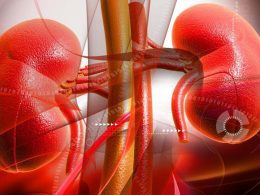Introduction: Recovering from childhood trauma is a challenging and deeply personal journey. It requires strength, resilience, and a commitment to your own well-being. This guide aims to provide guidance and strategies to navigate the process of healing from childhood trauma. By understanding the impact of trauma, seeking support, practicing self-care, exploring therapy options, fostering self-compassion, and embracing your inner strength, you can find empowerment and create a brighter future.
- Understanding the Impact of Childhood Trauma: Educate yourself about the impact of childhood trauma on your physical, emotional, and mental well-being. Recognize that trauma can affect various aspects of your life, including relationships, self-esteem, and coping mechanisms. Understanding the impact of trauma is the first step towards reclaiming your power.
- Seek Support from Trusted Individuals: Reach out to trusted individuals in your life who can provide support and understanding. This may include family members, friends, mentors, or support groups. Sharing your experiences with empathetic listeners can help alleviate feelings of isolation and provide validation.
- Consider Therapy Options: Explore therapy options that specialize in trauma recovery. Different therapeutic approaches, such as Cognitive-Behavioral Therapy (CBT), Eye Movement Desensitization and Reprocessing (EMDR), or somatic therapy, can help you process and heal from childhood trauma. Find a therapist who creates a safe and supportive environment for your healing journey.
- Practice Self-Care: Prioritize self-care as an essential component of your recovery process. Engage in activities that nourish your mind, body, and spirit. This may include exercise, healthy eating, meditation, journaling, engaging in hobbies, spending time in nature, or practicing relaxation techniques. Self-care provides a foundation for healing and rejuvenation.
- Cultivate Self-Compassion: Develop self-compassion by treating yourself with kindness and understanding. Acknowledge that your experiences were not your fault and release any self-blame or guilt. Practice self-compassion through positive self-talk, self-care rituals, and surrounding yourself with supportive and affirming influences.
- Embrace Your Inner Strength: Recognize the inherent strength within you that has helped you survive and navigate through childhood trauma. Tap into this resilience and draw upon it as you navigate the healing process. Believe in your capacity to heal and create a better future for yourself.
- Challenge Limiting Beliefs: Identify and challenge any limiting beliefs that have developed as a result of childhood trauma. Replace negative self-perceptions with empowering beliefs that affirm your worth and potential. Seek therapy or counseling to explore and reframe these beliefs, opening up new possibilities for personal growth and transformation.
- Practice Mindfulness and Emotional Regulation: Engage in mindfulness practices to bring awareness to the present moment and observe your thoughts and emotions without judgment. Cultivate emotional regulation techniques to manage intense emotions that may arise during the healing process. This allows you to respond to triggers in a healthy and constructive manner.
- Develop Healthy Coping Strategies: Identify healthy coping strategies that support your healing journey. This may include engaging in creative outlets, participating in support groups, practicing relaxation exercises, seeking social support, or engaging in activities that bring you joy and promote self-expression. Healthy coping strategies empower you to navigate challenges and promote resilience.
- Celebrate Milestones and Progress: Celebrate milestones and progress along your healing journey. Acknowledge your growth, resilience, and courage. Celebrating your achievements, no matter how small, reinforces your determination to overcome childhood trauma and encourages you to continue moving forward.
Conclusion: Recovering from childhood trauma requires strength, resilience, and self-compassion. By seeking support, exploring therapy options, practicing self-care, cultivating self-compassion, embracing your inner strength, challenging limiting beliefs, practicing mindfulness and emotional regulation, developing healthy coping strategies, and celebrating your progress, you can navigate the process of healing and find strength in adversity. Remember, you are not defined by your past, and with time and dedication, you can create a future filled with healing, growth, and joy.











